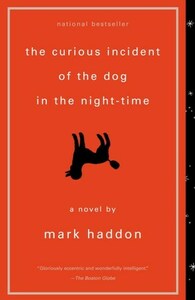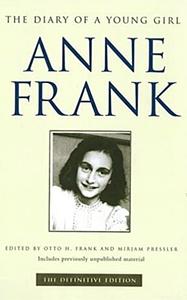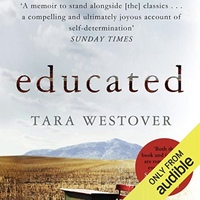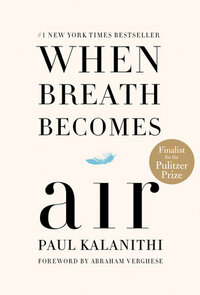You need to sign in or sign up before continuing.
Take a photo of a barcode or cover
kevin_macdonell's Reviews (81)
A forest planted of various trees, each species of which stands for a letter of the Gaelic alphabet, so that a poem literally grows out of the earth … this image struck me forcefully as a perfect metaphor for language having its origin in nature. (Which should make us wonder, when a language wanes, what is the loss to humanity?) Just one of the layers in this great piece of storytelling.
Mallon’s book is essential reading for those of us interested in private diaries and journals as an art form. The works he’s surveyed here, though, have only “dailiness” in common and often are not, as advertised, “books of one’s own.”
Mallon has an undeniable love for the form, but his definition is broad. He calls journaling “the genre to which it is impossible to ascribe formulas and standards,” but that doesn’t stop him from judging them as any other literature — and perhaps the examples he’s chosen are justifiably judged, given they were all (or most all) intended for some kind of readership.
His reading of published diaries has convinced him every diarist writes for someone other than themselves. The idea that a diarist is not writing for a public “is a diarist’s convenient fiction, an illusion that may keep him writing, but which, in his deepest recesses, he knows is false,” he claims.
A survey of diaries encounters an obvious challenge: One is blind to all the writing NOT intended for an audience — all that raw and unselfconscious writing that constitutes true private literature. Perhaps as a result, Mallon’s collection is a grab-bag, including Lewis and Clark, Queen Victoria, and Boswell, as well as authors who kept notebooks to capture snippets for use in future works. True personal diaries, as I think of them, are not at the centre of this collection.
His occasional diagnosis of “self-absorbed” or “self-indulgent” is a red flag. In response to that famous (notorious?) quote from Kafka’s diary about going swimming on the day in 1914 when war broke out, Mallon notes parenthetically that Kafka’s entry presents an “alarming juxtaposition.” Really? Kafka wrote a true diary, which his friend Max Brod was supposed to burn, a place for the most sane response to a cataclysmic event an individual can make. It was a reflection of the workings of his soul, not a companion to a history book.
Thomas Mallon is a fantastic writer and a diarist since the 1970s — check out the Dec 5, 2022 issue of The New Yorker for selections from his diaries from 1985 to 1988, when he was a young writer in New York, over which loomed the spectre of AIDS. The Library of Congress has acquired 146 volumes of his diaries. At some point in his life, he started writing for the person looking over his shoulder, and we are fortunate for that. But is that the day when what he was writing stopped being a diary?
Mallon has an undeniable love for the form, but his definition is broad. He calls journaling “the genre to which it is impossible to ascribe formulas and standards,” but that doesn’t stop him from judging them as any other literature — and perhaps the examples he’s chosen are justifiably judged, given they were all (or most all) intended for some kind of readership.
His reading of published diaries has convinced him every diarist writes for someone other than themselves. The idea that a diarist is not writing for a public “is a diarist’s convenient fiction, an illusion that may keep him writing, but which, in his deepest recesses, he knows is false,” he claims.
A survey of diaries encounters an obvious challenge: One is blind to all the writing NOT intended for an audience — all that raw and unselfconscious writing that constitutes true private literature. Perhaps as a result, Mallon’s collection is a grab-bag, including Lewis and Clark, Queen Victoria, and Boswell, as well as authors who kept notebooks to capture snippets for use in future works. True personal diaries, as I think of them, are not at the centre of this collection.
His occasional diagnosis of “self-absorbed” or “self-indulgent” is a red flag. In response to that famous (notorious?) quote from Kafka’s diary about going swimming on the day in 1914 when war broke out, Mallon notes parenthetically that Kafka’s entry presents an “alarming juxtaposition.” Really? Kafka wrote a true diary, which his friend Max Brod was supposed to burn, a place for the most sane response to a cataclysmic event an individual can make. It was a reflection of the workings of his soul, not a companion to a history book.
Thomas Mallon is a fantastic writer and a diarist since the 1970s — check out the Dec 5, 2022 issue of The New Yorker for selections from his diaries from 1985 to 1988, when he was a young writer in New York, over which loomed the spectre of AIDS. The Library of Congress has acquired 146 volumes of his diaries. At some point in his life, he started writing for the person looking over his shoulder, and we are fortunate for that. But is that the day when what he was writing stopped being a diary?
I found this book in one of those outdoor “little free library” book exchanges. The element of chance can reinforce a sense of a book’s fitting with a time and place in a person’s life. In middle age, Richard Bode left his high-paying desk job to write and build a more authentic life. (Check, check, check.)
However, your mileage may vary.
“I do not want to struggle anymore, I do not want to please.” I found much to love in this little book. Bode’s writing is fluid and full of wisdom. But he sometimes slips into platitude. And readers inclined to casually judge authors as “self-absorbed” will want to steer clear.
Bode makes observations about the lives (and especially marriages) of friends that made me wince. He seems to suggest, without actually saying it, that most marriages are obstacles to the authentic life, and that it’s the male who’s the innocent victim. His ideal in a woman seems to have been Paul Gauguin’s Tahitian muse-wife Tehamana, who “waited in silence, knowing when to speak, when not to speak.” Such things are offset by comments favourable to women, but these feel calculated.
I suggest you suspend judgment for the wisdom that’s there. On the other hand, you can find better elsewhere, especially if you’re not a middle-aged white man coasting on banked savings and privilege.
However, your mileage may vary.
“I do not want to struggle anymore, I do not want to please.” I found much to love in this little book. Bode’s writing is fluid and full of wisdom. But he sometimes slips into platitude. And readers inclined to casually judge authors as “self-absorbed” will want to steer clear.
Bode makes observations about the lives (and especially marriages) of friends that made me wince. He seems to suggest, without actually saying it, that most marriages are obstacles to the authentic life, and that it’s the male who’s the innocent victim. His ideal in a woman seems to have been Paul Gauguin’s Tahitian muse-wife Tehamana, who “waited in silence, knowing when to speak, when not to speak.” Such things are offset by comments favourable to women, but these feel calculated.
I suggest you suspend judgment for the wisdom that’s there. On the other hand, you can find better elsewhere, especially if you’re not a middle-aged white man coasting on banked savings and privilege.








